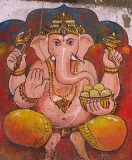Earlier this week, I discovered I had a groupon that was about to expire for the restaurant Texas French Bread. It was late, and I was tired – but I was also hungry, so I hopped in the car. I generally eat dinner around 6, but due to a late meeting it was now 8:30 and I was becoming ravenous.
Upon entering the restaurant, I fell into a seat and exhaled. It had been a long and somewhat nerve-jangling day. After ordering, I turned my attention to the people nearby enjoying their food. I love watching people. Especially when I am eating out alone, I tend not to bring anything to read or do, and simply watch instead. There was a generous familiarity among the other diners that made it feel like I had walked in to a dinner party – people from different tables seemed to know each other, talking with each other in passing. The friendliness of the room was contagious.
I enjoyed a lovely meal, right down to the butterscotch pudding with salted caramel. It was a rare meal out for me which lent a celebratory feel to the evening that encouraged a sweet indulgence – and with the rapid pace I had been keeping up all day, I figured a little dose of heavy Kapha would be good for me. (And it was!)
As I swallowed my last bites, I watched a portly man rise from a nearby table and sprinkle something from a zip-loc baggie around the floor in the middle of the dinning room. The complete lack of furtiveness in his movements seemed odd given that he was, in fact, sprinkling something around a public restaurant.
Then another man rose and took a seat at the (previously un-noticed by me) grand piano in the corner, and suddenly a vociferous stream of tango music catapulted across the room. Two couples rose smoothly from different tables and slid onto what I suddenly realized was a dance floor cleared in the middle of the room. My jaw hung slack as I looked around, feeling caught unaware in a musical or a Bollywood movie.
I watched the two couples slide across the floor with their controlled turns and fluid movements, each couple moving as one. The movements were slow and steady, smooth as if sliding on ice, and absolutely graceful. A low-profile version of tango, these dancers conveyed more elegance than drama, the portly sprinkler chief among them. As I admired their gravity and grace, I thought, “What a perfect expression of balanced Kapha.”
The occasional quick turn of a leg or foot prevented any dullness from settling in, yet the overriding impression was of calmness, stateliness. Each dancer seemed absorbed into their partner, a perfect illustration of the cleaving quality of oil (in contrast to water’s tendency to disperse). Their quiet grace was lovely and captivating.
 So often, Kapha gets the short end of the stick in our culture. We tend to focus on its negative expressions, or the qualities of excess Kapha – lethargy, obesity, stuckness. The elegant dance of tango reminded me that every dosha has value and strengths to offer us, and from which we can benefit.
So often, Kapha gets the short end of the stick in our culture. We tend to focus on its negative expressions, or the qualities of excess Kapha – lethargy, obesity, stuckness. The elegant dance of tango reminded me that every dosha has value and strengths to offer us, and from which we can benefit.
Those of us with a lot of Vata or Pitta in our baseline constitutions can particularly benefit from a Kapha-cultivating practice. Similar to tango, a slow, graceful practice like Quigong or Taichi also cultivates the qualities of Kapha in a balanced, life-affirming way. Stamina, fluidity and compassion are ample rewards.
Watching the couples spin and settle back into their velvety smoothness, I was sold. I wanted in, regardless of the fact that I don’t really know how to tango. I happily leapt up when one of the original dancers approached me, woman dining alone that I was, and invited me to dance.
Settling into the crook of his arm, letting him steer me through the swooping glides and firm stops, something in me turned and slid into place with a satisfied “click.” The conviviality of the crowd, the swirling smoothness of the dance, the sweetness of the meal – a perfect Kapha night.

